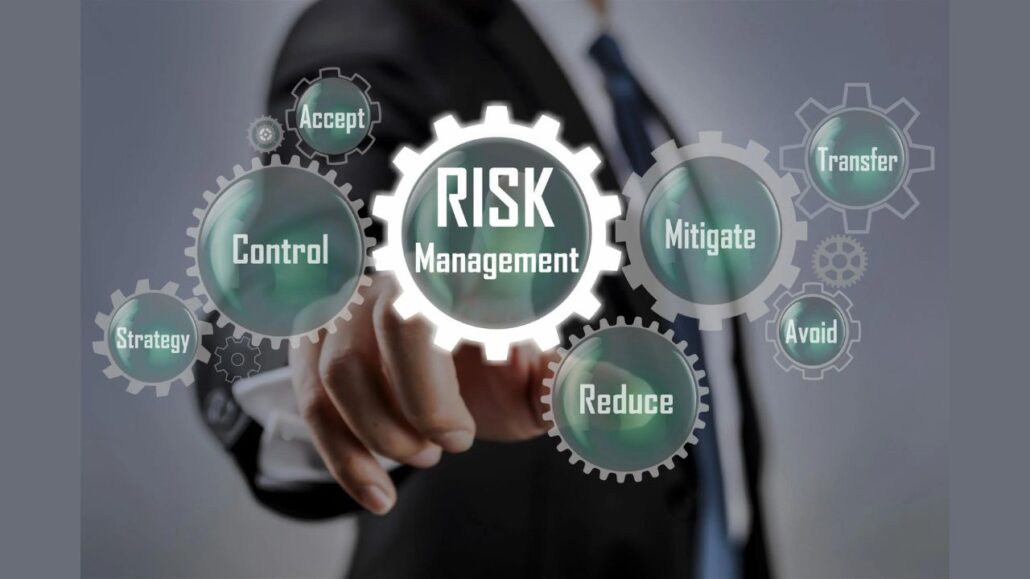Real estate marketing presents significant opportunities for growth through digital strategies like SEO, content marketing, and email campaigns. However, it also entails risks such as regulatory, legal liabilities, and reputation management issues. Navigating these is crucial for success in the real estate industry.
Nature of Real Estate Marketing
The nature of real estate marketing is inherently , continuously evolving to meet changing consumer demands and technological advancements. Agents and brokers must adapt to emerging trends, leveraging digital platforms, social media, and virtual tools to showcase properties effectively.
This dynamic landscape requires agility and innovation, as well as a deep understanding of market dynamics and buyer behavior. Real estate marketing encompasses a diverse range of strategies, from local SEO optimization to content marketing and email campaigns.
Successful agents recognize the importance of staying ahead of the curve and embracing new technologies and platforms to reach and engage with prospective buyers. In essence, the nature of real estate marketing is characterized by its fluidity and adaptability, requiring constant evolution and innovation to thrive in a competitive market.
Emerging Trends in Real Estate Marketing
The real estate landscape is evolving rapidly, driven by innovative marketing strategies that leverage digital platforms and technologies. From virtual reality tours to social media advertising, agents are embracing new tools to showcase properties and engage buyers.
These trends emphasize the importance of staying ahead in a competitive market, where online presence and visibility are paramount. With the rise of mobile usage and social media influence, real estate professionals must adapt to changing consumer behaviors and preferences.
By embracing emerging trends, such as personalized content marketing and immersive experiences, agents can differentiate themselves and attract a wider audience. In today’s dynamic market, staying informed and embracing innovation is essential for success in real estate marketing.
Importance of Local SEO for Real Estate Agents
Local SEO has emerged as a crucial tool for agents to improve visibility and attract potential clients within their target market. By optimizing their online presence, including Google My Business listings and local keywords, agents can ensure that their properties are prominently featured in local search results.
Local SEO not only increases brand visibility but also enhances credibility and trust among local clientele. With the majority of homebuyers starting their property search online, investing in local SEO strategies has become essential for real estate agents to stay ahead of the competition and connect with qualified leads effectively.
By leveraging the power of local SEO, agents can establish a strong foothold in their community and drive sustainable business growth.
Content Marketing Strategies for Real Estate
Content marketing emerges as a potent tool for agents and brokers to captivate audiences and drive sales. Through engaging blog posts, visually stunning videos, and informative infographics, agents can showcase property highlights, neighborhood amenities, and market insights.
By providing valuable content, agents establish themselves as trusted advisors, nurturing relationships with potential buyers and sellers. Content marketing fosters credibility and brand recognition, positioning agents as industry authorities. Moreover, it facilitates organic lead generation, attracting prospects through informative and shareable content.
As consumers increasingly turn to online resources for property searches, a robust content marketing strategy becomes indispensable for real estate professionals seeking to stand out in a crowded market.
Embracing creativity and innovation, agents can leverage content marketing to forge meaningful connections and drive business growth in the digital age.
Leveraging Email Marketing in Real Estate
Email marketing serves as a potent tool for real estate professionals seeking to engage with clients and drive conversions effectively. By cultivating a targeted email list comprising potential buyers and sellers, agents can deliver personalized property listings, market updates, and valuable insights directly to their audience’s inbox.
Segmenting email lists based on demographic data, preferences, and past interactions allows for tailored communication that resonates with recipients. Furthermore, leveraging automation tools streamlines the process, ensuring timely and consistent communication without overwhelming recipients.
Effective email marketing fosters meaningful relationships, nurtures leads through the sales funnel, and reinforces brand credibility and trustworthiness.
Mastering the art of email marketing enables agents to stay top-of-mind with clients, differentiate themselves from competitors, and ultimately drive business growth and success.
Risks Associated with Real Estate Marketing
Several risks loom large for agents and brokers. Regulatory challenges demand strict adherence to legal standards, failure of which may result in hefty fines and tarnished reputations.
Legal liabilities arise from misleading advertisements or inadequate property disclosures, potentially leading to costly lawsuits. Reputation management is paramount, as negative feedback can swiftly damage an agent’s credibility.
Moreover, market volatility poses financial risks, necessitating prudent decision-making and risk mitigation strategies. Agents must navigate these risks diligently, prioritizing transparency, compliance, and ethical conduct in all marketing endeavors.
By staying informed, proactive, and vigilant, real estate professionals can safeguard their businesses and foster trust among clients and stakeholders in the dynamic and competitive real estate landscape.
Regulatory and Compliance Issues
Regulatory and compliance issues in business encompass adherence to laws, standards, and regulations set by governing bodies.
In industries like finance, healthcare, and environmental protection, compliance is paramount to avoid penalties, lawsuits, and damage to reputation. Ensuring adherence requires proactive measures, thorough documentation, and ongoing monitoring of regulatory changes.
By prioritizing compliance, businesses can uphold ethical standards, mitigate risks, and build trust with stakeholders while operating within legal frameworks.
Legal Risks in Advertising and Marketing Properties
what the most important marketing opportunities and risks in real estate, Legal Risks in Advertising and Marketing Properties can pose substantial threats to real estate agents and brokers.
Misleading advertisements, inaccurate property descriptions, and failure to disclose relevant information can lead to legal liabilities and lawsuits.
Compliance with regulatory standards, transparency in communication, and due diligence in property marketing are essential to mitigate these risks and safeguard the agent’s reputation and business interests.
Reputation Management and Brand Image Concerns
what the most important marketing opportunities and risks in real estate, Reputation management and brand image concerns hold paramount importance.
A company’s reputation, built over time through consistent performance and ethical conduct, can significantly influence consumer perception and purchasing decisions.
Effective reputation management involves actively monitoring online feedback, addressing customer concerns promptly, and cultivating a positive brand narrative.
By prioritizing brand image concerns, businesses can safeguard their credibility, build trust with stakeholders, and maintain a competitive edge in the market.
Mitigating Risks in Real Estate Marketing

Mitigating Risks in Real Estate Marketing requires a proactive approach and adherence to ethical standards. Transparency and honesty in communication build trust with clients while thorough due diligence safeguards against legal liabilities. Positive testimonials and reviews enhance credibility, distinguishing agents in a competitive market.
By prioritizing these strategies, real estate professionals can navigate challenges and protect their reputations. Additionally, staying informed about regulatory requirements and market trends is essential.
Embracing technology for compliance and risk management further strengthens an agent’s position. Ultimately, mitigating risks not only protects the agent but also fosters long-term relationships with clients, laying the foundation for sustained success in the dynamic realm of real estate marketing.
Importance of Transparency and Honesty
what the most important marketing opportunities and risks in real estate, Transparency and honesty form the bedrock of any successful relationship, especially in business transactions. In the realm of real estate, these virtues are paramount.
Clients rely on agents to provide accurate information, disclose relevant details, and set realistic expectations. By prioritizing transparency and honesty, agents not only build trust but also foster long-term relationships, ensuring mutual satisfaction and positive outcomes for all parties involved.
Conducting Due Diligence
what the most important marketing opportunities and risks in real estate, Conducting due diligence is a critical aspect of any real estate transaction. It involves thorough research, verification of property details, and assessment of market conditions.
This process helps buyers and sellers mitigate risks, identify potential issues, and make informed decisions. From examining property documents to assessing legal compliance,
Due diligence ensures transparency and protects the interests of all parties involved. It’s a crucial step in navigating the complexities of the real estate market and avoiding costly mistakes.
Building Trust Through Testimonials and Reviews
The trust serves as the foundation of successful relationships. When it comes to real estate, where transactions involve significant investments and emotions, trust is paramount. Testimonials and reviews play a pivotal role in establishing and nurturing this trust.
Authentic testimonials from satisfied clients serve as powerful endorsements for real estate professionals. Positive reviews showcase the agent’s expertise, professionalism, and dedication to client satisfaction. They provide valuable insights into the agent’s communication skills, negotiation prowess, and ability to navigate complex transactions.
Potential buyers and sellers often rely on testimonials and reviews to gauge an agent’s credibility and reliability. They offer reassurance and peace of mind, helping clients make informed decisions with confidence. By prioritizing transparency and actively seeking feedback, real estate agents can build long-lasting relationships based on trust and mutual respect.
Testimonials and reviews are not just reflections of past experiences; they are the building blocks of trust that pave the way for future success in the real estate industry.
The Most Important Factors for Real Estate Investing

Real estate investing demands thorough consideration of several key factors. Location remains paramount, with proximity to amenities, schools, and transportation influencing property value.
Market trends, including supply and demand dynamics, also play a crucial role. Financial aspects like mortgage rates, taxes, and potential rental income should be considered. Additionally, investors must assess property conditions, potential for appreciation, and potential risks.
Diligent research, informed decision-making, and a long-term investment outlook are essential for success in real estate investing. By understanding and prioritizing these factors, investors can build a profitable and resilient real estate portfolio.
Property Location
Why It’s Important
what the most important marketing opportunities and risks in real estate, The significance of a task, decision, or concept is pivotal for informed action and successful outcomes. Knowing why something matters provides clarity, purpose, and motivation.
It serves as a guiding principle, helping individuals and organizations prioritize efforts and allocate resources effectively. Whether in personal endeavors or professional pursuits, recognizing the importance of actions fosters accountability, innovation, and growth.
In essence, understanding “why it’s important” lays the foundation for meaningful progress and achievement across various facets of life.
What to Look For
When considering a new investment or purchase, knowing what to look for is essential. Whether it’s a property, product, or service, attention to detail matters; look for quality, reliability, and value.
Research thoroughly, ask questions, and seek recommendations. Ultimately, prioritize factors aligned with your needs and goals. By being informed and discerning, you can make confident decisions that meet your expectations and lead to satisfactory outcomes.
Trust your instincts, but also rely on factual information and expertise to guide your choices. Remember, what you look for often determines what you find. Choose wisely.
Conclusion
Real estate marketing offers boundless opportunities for growth and success, but it has its share of risks and challenges. By staying informed, embracing innovation, and prioritizing ethical practices, real estate professionals can navigate the ever-changing landscape of marketing and emerge as industry leaders.
FAQ
What is market risk in real estate?
The risk in the real estate market pertains to potential changes in property values and rental income stemming from shifts in economic conditions, interest rates, and demographics. This risk is particularly pertinent for investors aiming for long-term property appreciation through buy-and-hold strategies.
What are the Most Important Aspects of Real Estate?
The saying “location, location, location” remains paramount, retaining its status as the primary determinant of profitability in real estate investment. Residential property valuations heavily consider proximity to amenities, green spaces, picturesque views, and the neighborhood’s overall status.
What is the Biggest Risk in the Market?
The primary market risks encompass interest rate risk, equity risk, currency risk, and commodity risk. Interest rate risk pertains to the volatility stemming from interest rate changes influenced by fundamental factors like central bank announcements regarding monetary policy adjustments.
What is Capital Risk in Real Estate?
Investing in real estate entails capital risk, which refers to the potential financial loss an investor may encounter. Regardless of an investor’s confidence or experience, there’s always a chance of losing some or all of the investment capital. Financial risk remains a constant consideration in real estate investments.
What is the Risk of Competitors?
Competition risk, also referred to as competitive risk, encompasses the possibility that competitive pressures may hinder the attainment of objectives. It commonly relates to the potential for decreased business revenue or profit margins resulting from the activities of competitors.



